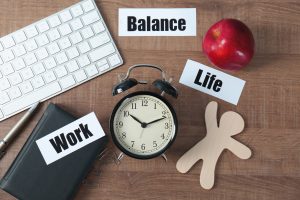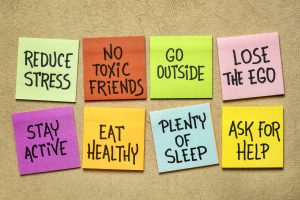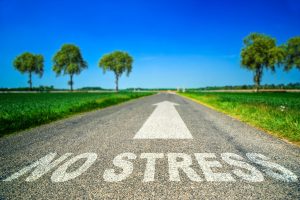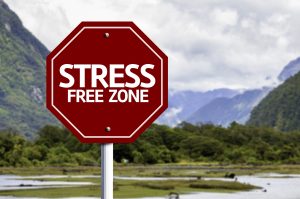By – James M. Katz, BA

Substance abuse counseling plays a critical role in addiction recovery and families overcome the challenges of addiction. As a substance abuse counselor, the primary objective is to provide support, guidance, and therapy to those struggling with substance abuse and addiction. In this comprehensive guide, I will explore the various aspects of substance abuse counseling, including the role of a counselor, the nature of substance abuse and addiction, the stages of addiction recovery, counseling approaches and techniques, the importance of family involvement, tips for finding the right counselor, common myths and misconceptions, and resources for counseling and support.
Substance Abuse Counseling is extremely important in Addiction Recovery. Identifying the root causes of the addiction is also extremely important. Events, triggers, and existing issues in one’s personal life can create problems with any recovery effort. In the article quoted below, it goes more in depth on the causes of substance abuse.
Addiction can be a difficult and overwhelming experience for individuals and their loved ones. It is important to understand the root of the problem and take appropriate steps to combat substance abuse. Addiction can have a major impact on an individual’s physical and mental health, as well as their personal and professional relationships. Seeking help and support is crucial for overcoming addiction and maintaining a healthy, fulfilling life.
The Ultimate Guide For Addiction Recovery. By David Hucks December 6, 2023 Myrtle Beach SC News
Commentary:
The Role of Substance Abuse Counseling
As a substance abuse counselor, the role is multifaceted. They are responsible for assessing the needs of individuals struggling with substance abuse and addiction, developing personalized treatment plans, and providing therapy and support throughout the recovery process. Working closely with clients to identify the underlying causes of their addiction, address any co-occurring mental health issues, and help them develop strategies for maintaining sobriety. Additionally, they play a crucial role in educating individuals and their families about the nature of addiction and the importance of seeking professional help.
Understanding Substance Abuse and Addiction
Substance abuse refers to the harmful or hazardous use of psychoactive substances, such as alcohol, drugs, or prescription medications. Addiction, on the other hand, is characterized by a compulsive need to use a substance despite negative consequences. It is essential to understand that addiction is a chronic disease that affects the brain, leading to changes in behavior, cognition, and emotional regulation. Substance abuse and addiction can have severe physical, psychological, and social consequences, and seeking professional help is crucial for recovery.
The Stages of Addiction Recovery
Recovery from addiction is a complex and lifelong process that involves several stages. The first stage is recognition, where individuals become aware of their substance abuse problem and acknowledge the need for change. This is followed by the stage of detoxification, where individuals undergo a supervised withdrawal process to rid their bodies of the addictive substance. The next stage is rehabilitation, which involves therapy, counseling, and learning new coping skills to prevent relapse. Finally, the maintenance stage focuses on sustaining sobriety and preventing relapse through ongoing support and aftercare programs.
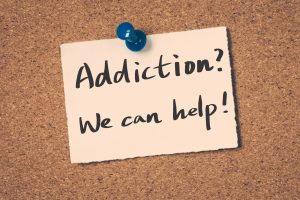
Types of Substance Abuse Counseling Approaches
Substance abuse counseling employs various approaches to address the unique needs of individuals struggling with addiction. Some common approaches include cognitive-behavioral therapy (CBT), which helps individuals identify and change destructive patterns of thinking and behavior, and motivational interviewing, which aims to increase an individual’s motivation to change. Other approaches may include dialectical behavior therapy (DBT), family therapy, group therapy, and holistic therapies such as yoga and meditation. The choice of approach depends on the individual’s needs, preferences, and the severity of the addiction.
Techniques Used in Substance Abuse Counseling
Substance abuse counseling utilizes a range of techniques to support individuals in their recovery journey. These techniques may include individual counseling sessions, where clients can explore their emotions, thoughts, and behaviors in a safe and confidential space. Group therapy sessions provide individuals with a supportive community and the opportunity to learn from others who have faced similar challenges. Additionally, counselors may use behavioral interventions, such as contingency management, to reinforce positive behaviors and discourage substance abuse. The use of evidence-based techniques ensures that counseling is effective and tailored to the unique needs of each individual.
The Importance of Family Involvement in Substance Abuse Counseling
Family involvement is crucial in substance abuse counseling, as addiction affects not only the individual but also their loved ones. Families play a significant role in providing support, understanding, and encouragement throughout the recovery process. Family therapy sessions can help address underlying family dynamics that may contribute to substance abuse. Education and support for family members can also help them understand the nature of addiction and develop healthy coping mechanisms. Involving the family in counseling can strengthen relationships and provide a solid foundation for long-term recovery.
Tips for Finding the Right Substance Abuse Counselor
- Finding the right substance abuse counselor is essential for effective treatment. Here are some tips to consider when searching for a counselor:
- Look for credentials and experience: Ensure that the counselor is licensed and has expertise in substance abuse counseling.
- Evaluate their approach: Different counselors may have different therapeutic approaches, so find one that aligns with your needs and preferences.
- Seek recommendations: Reach out to trusted healthcare professionals, friends, or family members who may have experience with substance abuse counseling.
- Consider accessibility: Choose a counselor who is conveniently located and offers flexible appointment options.
- Trust your instincts: It is crucial to feel comfortable and trust your counselor, as this will facilitate open and honest communication.
Common Myths and Misconceptions about Substance Abuse Counseling
There are several myths and misconceptions surrounding substance abuse counseling that can hinder individuals from seeking help. It is important to debunk these myths to encourage individuals to seek the support they need. Some common myths include the belief that counseling is only for severe addiction, that it is a sign of weakness or failure, or that it is ineffective. Substance abuse counseling is a valuable and evidence-based approach to addiction recovery that can help individuals regain control over their lives and achieve lasting sobriety.
Resources for Substance Abuse Counseling and Support
There are numerous resources available for individuals and families seeking substance abuse counseling and support. Local community centers, healthcare clinics, and hospitals often offer counseling services. National helplines and online directories can provide information on local resources and treatment centers. Additionally, support groups such as Alcoholics Anonymous (AA) and Narcotics Anonymous (NA) offer a supportive community of individuals in recovery. It is essential to explore these resources and find the support that best suits your needs.
Conclusion

Substance abuse counseling is a vital component of addiction recovery, providing individuals and families with the support, guidance, and therapy needed to overcome substance abuse. By understanding the role of a substance abuse counselor, the nature of addiction, the stages of recovery, counseling approaches and techniques, and the importance of family involvement, individuals can make informed decisions about seeking help. It is crucial to debunk common myths and misconceptions and utilize available resources to find the right counselor and support system. With professional assistance and a commitment to change, individuals and families can embark on a journey of recovery and achieve lasting sobriety. If you or someone you know is struggling with substance abuse, don’t hesitate to seek help. Reach out to a substance abuse counselor or a local treatment center to start your journey to recovery today. For more information on how to become a substance abuse counselor please consider reviewing our Substance Abuse Practitioner program
References:
NAADAC – The Association for Addiction Professionals
Additional Resources:
Predictors of early dropout in outpatient buprenorphine/naloxone treatment. Marcovitz, D.E., et al. (2016), Am J Addict, 25: 472-477.
Deception and Drug Acquisition: Correlates of “Success” Among Drug-Seeking Patients. Sanders AN, et al. Journal of Primary Care & Community Health. 2016;7(3):175-179.
RCAM: a proposed model of recovery capital for adolescents, Addiction Research & Theory. Emily A. Hennessy, Julie V. Cristello & John F. Kelly (2019) 27:5, 429-436,
Lifestyle interventions in the management of substance use disorder. Naren, T., Cook, J., Armstrong, F., & Manger, S. (2022). Australian Journal of General Practice, 51(8), 560–564.











